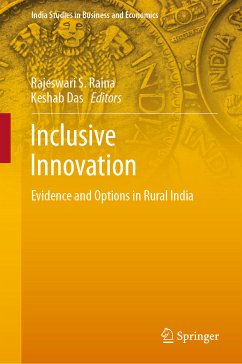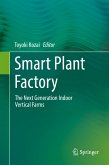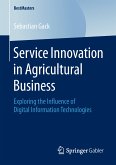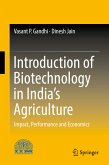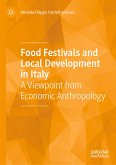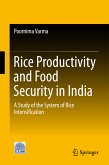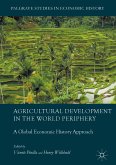Inclusive Innovation (eBook, PDF)
Evidence and Options in Rural India
Redaktion: Raina, Rajeswari S.; Das, Keshab
40,95 €
inkl. MwSt.
Sofort per Download lieferbar

20 °P sammeln
Inclusive Innovation (eBook, PDF)
Evidence and Options in Rural India
Redaktion: Raina, Rajeswari S.; Das, Keshab
- Format: PDF
- Merkliste
- Auf die Merkliste
- Bewerten Bewerten
- Teilen
- Produkt teilen
- Produkterinnerung
- Produkterinnerung

Bitte loggen Sie sich zunächst in Ihr Kundenkonto ein oder registrieren Sie sich bei
bücher.de, um das eBook-Abo tolino select nutzen zu können.
Hier können Sie sich einloggen
Hier können Sie sich einloggen
Sie sind bereits eingeloggt. Klicken Sie auf 2. tolino select Abo, um fortzufahren.

Bitte loggen Sie sich zunächst in Ihr Kundenkonto ein oder registrieren Sie sich bei bücher.de, um das eBook-Abo tolino select nutzen zu können.
Combines theoretical propositions from the literature on development studies and innovation systems, bringing together economic, political science, and sociological analyses
Examines a representative set of rural development problems, including rainfed agriculture, artisanal production systems, water-management, plantations, and agri-produce marketing, which offer opportunities for inclusive innovation.
Addresses the historical, political and social features that shape knowledge-generation access and use by rural communities.
- Geräte: PC
- ohne Kopierschutz
- eBook Hilfe
- Größe: 3.8MB
Andere Kunden interessierten sich auch für
![Smart Plant Factory (eBook, PDF) Smart Plant Factory (eBook, PDF)]() Smart Plant Factory (eBook, PDF)176,95 €
Smart Plant Factory (eBook, PDF)176,95 €![Service Innovation in Agricultural Business (eBook, PDF) Service Innovation in Agricultural Business (eBook, PDF)]() Sebastian GackService Innovation in Agricultural Business (eBook, PDF)40,95 €
Sebastian GackService Innovation in Agricultural Business (eBook, PDF)40,95 €![Introduction of Biotechnology in India's Agriculture (eBook, PDF) Introduction of Biotechnology in India's Agriculture (eBook, PDF)]() Vasant P. GandhiIntroduction of Biotechnology in India's Agriculture (eBook, PDF)88,95 €
Vasant P. GandhiIntroduction of Biotechnology in India's Agriculture (eBook, PDF)88,95 €![Family Farming and the Worlds to Come (eBook, PDF) Family Farming and the Worlds to Come (eBook, PDF)]() Family Farming and the Worlds to Come (eBook, PDF)80,95 €
Family Farming and the Worlds to Come (eBook, PDF)80,95 €![Food Festivals and Local Development in Italy (eBook, PDF) Food Festivals and Local Development in Italy (eBook, PDF)]() Michele Filippo FontefrancescoFood Festivals and Local Development in Italy (eBook, PDF)68,95 €
Michele Filippo FontefrancescoFood Festivals and Local Development in Italy (eBook, PDF)68,95 €![Rice Productivity and Food Security in India (eBook, PDF) Rice Productivity and Food Security in India (eBook, PDF)]() Poornima VarmaRice Productivity and Food Security in India (eBook, PDF)72,95 €
Poornima VarmaRice Productivity and Food Security in India (eBook, PDF)72,95 €![Agricultural Development in the World Periphery (eBook, PDF) Agricultural Development in the World Periphery (eBook, PDF)]() Agricultural Development in the World Periphery (eBook, PDF)88,95 €
Agricultural Development in the World Periphery (eBook, PDF)88,95 €-
-
-
Combines theoretical propositions from the literature on development studies and innovation systems, bringing together economic, political science, and sociological analyses
Examines a representative set of rural development problems, including rainfed agriculture, artisanal production systems, water-management, plantations, and agri-produce marketing, which offer opportunities for inclusive innovation.
Addresses the historical, political and social features that shape knowledge-generation access and use by rural communities.
Examines a representative set of rural development problems, including rainfed agriculture, artisanal production systems, water-management, plantations, and agri-produce marketing, which offer opportunities for inclusive innovation.
Addresses the historical, political and social features that shape knowledge-generation access and use by rural communities.
Dieser Download kann aus rechtlichen Gründen nur mit Rechnungsadresse in A, B, BG, CY, CZ, D, DK, EW, E, FIN, F, GR, HR, H, IRL, I, LT, L, LR, M, NL, PL, P, R, S, SLO, SK ausgeliefert werden.
Produktdetails
- Produktdetails
- Verlag: Springer India
- Seitenzahl: 275
- Erscheinungstermin: 27. Februar 2020
- Englisch
- ISBN-13: 9788132239291
- Artikelnr.: 58751304
- Verlag: Springer India
- Seitenzahl: 275
- Erscheinungstermin: 27. Februar 2020
- Englisch
- ISBN-13: 9788132239291
- Artikelnr.: 58751304
- Herstellerkennzeichnung Die Herstellerinformationen sind derzeit nicht verfügbar.
Rajeswari S. Raina is a Professor at Shiv Nadar University's School of Humanities and Social Sciences (SHSS), Department of International Relations and Governance Studies, and Associate Director of the University's Centre for Public Affairs and Critical Theory (C-PACT). With a background in the agricultural sciences and the social sciences (Ph.D., Economics from Kerala University, through the Centre for Development Studies, Trivandrum), her research explores the complex relationships between development policy and knowledge-formal scientific and diverse informal knowledge systems. Her research questions have been mainly in the social studies of science, innovation systems and policies and institutional learning capacities, specifically in the agricultural and rural sectors, and the environment in India and Asia. Individually and in collaboration with networks of actors in the government, civil society and environmental organizations, farming communities and international agencies, her current research focuses on the knowledge politics of and institutional reform for (a) poverty relevant science, technology and innovation, (b) ecological and bio-economic wellbeing, and (c) sustainable agriculture-environment-nutrition interfaces and state nutrition programmes. Well published in internationally refereed journals, edited and co-authored books, several domestic and international task force and working group reports, her edited books are Science, Technology and Development in India: Encountering Values (Orient BlackSwan 2015), and (co-edited with Julien-Francois Gerber) Post-growth Thinking in India (Orient BlackSwan, 2018). Keshab Das is a Professor at the Gujarat Institute of Development Research, Ahmedabad, India. He holds M.Phil. (Applied Economics) and Ph.D. (Economics) degrees from the Jawaharlal Nehru University, New Delhi (through the Centre for Development Studies, Trivandrum). He also holds a bachelor's degree in Journalism and Mass Communications. He is a recipient of the VKRV Rao Prize in Social Sciences (Economics) and had been empanelled as an Indian Council for Cultural Relations Chair Professor in Economics. He has been a visiting research fellow/faculty at the NKC Centre for Development Studies, Bhubaneswar, Odisha; Punjabi University, Patiala, Punjab; Tshwane University of Technology, Pretoria, South Africa; University of Insubria, Varese, Italy; InternationalInstitute of Social Studies (ISS), The Hague, the Netherlands; University of Manchester, Manchester, UK; Institute of Developing Economies, Chiba, Japan; Institute for Studies in Industrial Development, New Delhi; CNRS-REGARDS, Bordeaux, France; Maison des Sciences de l'Homme (MSH), Paris, France; and Institute of Development Studies, Brighton, UK. Published extensively, his research focuses on issues in local and regional development; industrialisation strategies; informal sector; micro, small and medium enterprises (MSMEs), clusters and globalisation; innovation; labour; basic infrastructure; and politics of development. Among others, his two published books with Springer are Globalization and Standards: Issues and Challenges in Indian Business (ed., 2014), and Manufacturing Exports from Indian States: Determinants and Policy Imperatives (co-authored with Jaya Prakash Pradhan, 2016).
Part I: The Problem.- Chapter 1. Inclusion and Innovation in India's Rural Development Agenda (Keshab Das).- Chapter 2. Inclusive Innovation Systems: Exploring Spatial, Organizational and Institutional Exclusion (Rajeswari S. Raina).- Part II: The Evidence: Inclusive Innovation in Formal Organized Spaces.- Chapter 3. Molecular Biology and Genetics: Inclusive Innovation in Indian Agriculture (E. Haribabu).- Chapter 4. Gender and Inclusion: Demands for Innovation and Resistance in the Agricultural Science Curriculum (Geethakutty P).- Chapter 5. Commodity Markets, Computers and Inclusive Development: A Study of Marketing and Price Formation of Cardamom under e-auction (K. J. Joseph).- Chapter 6. Turnaround in Maternal and Child Healthcare of India: Role of Institutional Innovation and ASHA (Amarendra Das).- Chapter 7. Learning from China: S&T and Innovation Policy Responsiveness (G. D. Sandhya).- Part III: The Evidence: Inclusive Innovation in Informal Spaces and Systems.- Chapter 8.Exploring Challenges for Innovation in Handloom Clusters of Assam: Lessons for Policy (Priyatam Anurag).- Chapter 9. Social Innovation and Entrepreneurship in India: Nurturing the Institutional sine qua non for the Informal Sector.- Chapter 10. Enabling Inclusive Innovation: The Role of Informal Knowledge Networks in Rural Low-tech Clusters (Anant Kamath).- Chapter 11. Factors Determining Innovation in Micro Enterprise in Clusters in India (Tamal Sarkar).- Chapter 12. Integrating Innovation into Rural Development: Persistent Exclusions as Entry Points (Keshab Das).
Part I: The Problem.- Chapter 1. Inclusion and Innovation in India's Rural Development Agenda (Keshab Das).- Chapter 2. Inclusive Innovation Systems: Exploring Spatial, Organizational and Institutional Exclusion (Rajeswari S. Raina).- Part II: The Evidence: Inclusive Innovation in Formal Organized Spaces.- Chapter 3. Molecular Biology and Genetics: Inclusive Innovation in Indian Agriculture (E. Haribabu).- Chapter 4. Gender and Inclusion: Demands for Innovation and Resistance in the Agricultural Science Curriculum (Geethakutty P).- Chapter 5. Commodity Markets, Computers and Inclusive Development: A Study of Marketing and Price Formation of Cardamom under e-auction (K. J. Joseph).- Chapter 6. Turnaround in Maternal and Child Healthcare of India: Role of Institutional Innovation and ASHA (Amarendra Das).- Chapter 7. Learning from China: S&T and Innovation Policy Responsiveness (G. D. Sandhya).- Part III: The Evidence: Inclusive Innovation in Informal Spaces and Systems.- Chapter 8.Exploring Challenges for Innovation in Handloom Clusters of Assam: Lessons for Policy (Priyatam Anurag).- Chapter 9. Social Innovation and Entrepreneurship in India: Nurturing the Institutional sine qua non for the Informal Sector.- Chapter 10. Enabling Inclusive Innovation: The Role of Informal Knowledge Networks in Rural Low-tech Clusters (Anant Kamath).- Chapter 11. Factors Determining Innovation in Micro Enterprise in Clusters in India (Tamal Sarkar).- Chapter 12. Integrating Innovation into Rural Development: Persistent Exclusions as Entry Points (Keshab Das).
